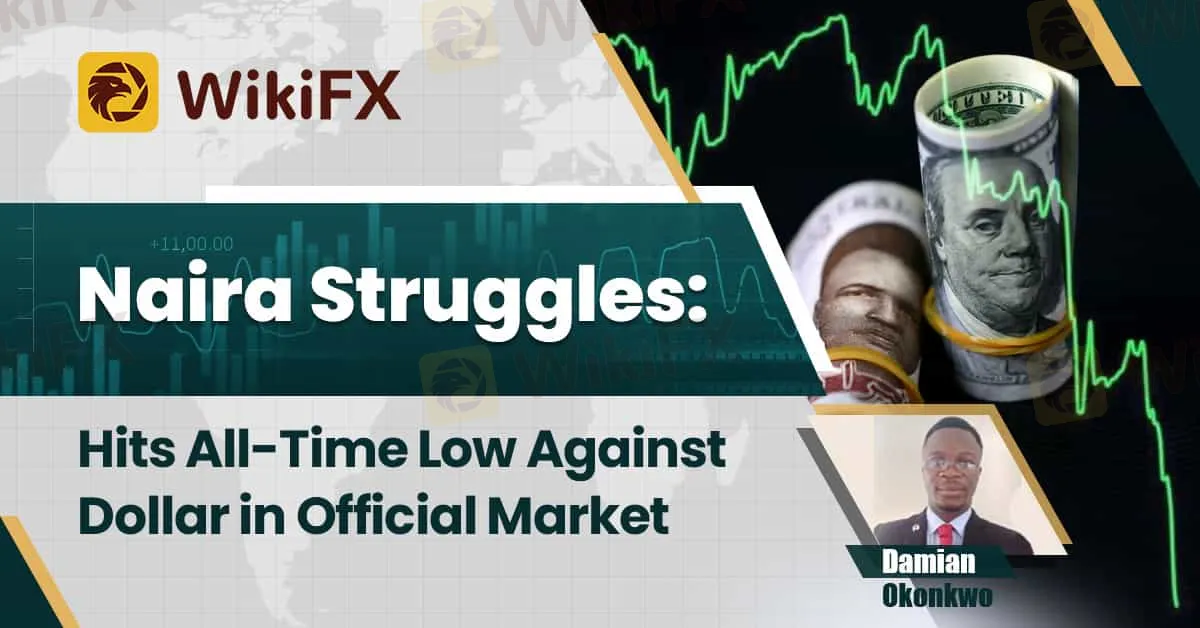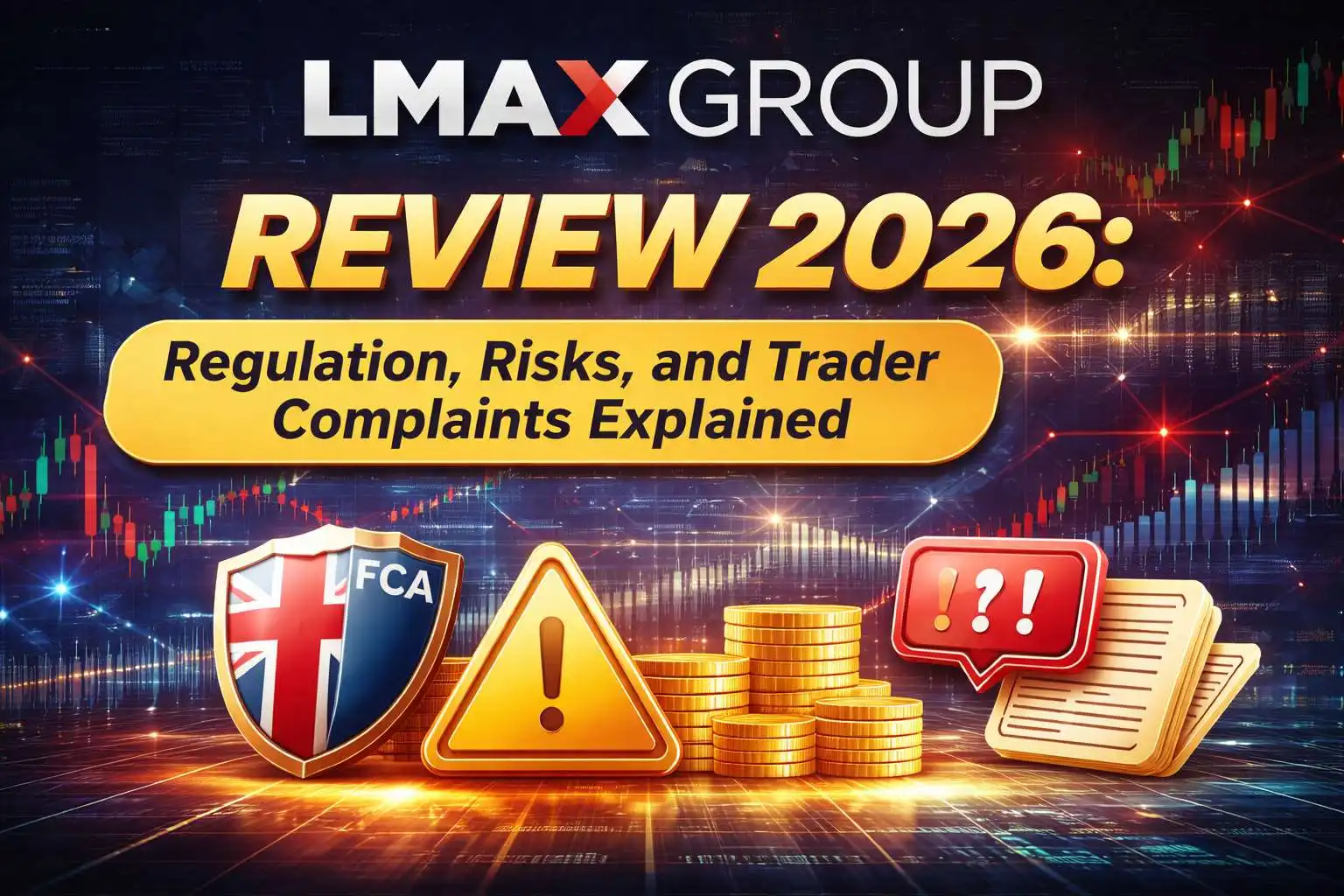LMAX GROUP Review 2026: Regulation, Risks, and Trader Complaints Explained
LMAX GROUP review: FCA regulation, WikiFX score 7.51/10, trader complaints, risks, and broker comparison. Is LMAX GROUP safe for traders?
简体中文
繁體中文
English
Pусский
日本語
ภาษาไทย
Tiếng Việt
Bahasa Indonesia
Español
हिन्दी
Filippiiniläinen
Français
Deutsch
Português
Türkçe
한국어
العربية
Abstract:The Naira's struggles are a complex issue with no easy solutions.

By: Damian Okonkwo

The Nigerian Naira has faced serious challenges since 2024, reaching record lows against the US Dollar in both the official and parallel foreign on February 20th, 2024; to trade at the lowest rate ever at N1,620.96 per $1 on the FMDQ Exchange, which is the official platform for official foreign exchange trading.
The situation seen in the parallel market, a less regulated space, is even more concerning. Here, the Naira crossed the N1,750 per $1 mark, to nearly N2000 per $ same day, further highlighting the pressure on the currency.
Factors Contributing to the Decline:
There are many factors that may have contributed to the current devaluation of the Naira. These includes:
A. Dollar scarcity: The primary driver of the Naira's depreciation is the limited availability of US Dollars in the Nigerian market. This scarcity could be attributed to:
● Lower oil revenue: Oil exports are a major source of foreign exchange for Nigeria. However, a decline in global oil prices and production issues have restricted this income.
● Increased demand for dollars: The demand for dollars has risen due to factors like:
● Import dependency: Nigeria relies heavily on imports, requiring foreign currency for purchases.
● Capital flight: Investors and businesses are shifting their funds outside Nigeria due to economic uncertainties, further reducing dollar availability.
B. Central Bank of Nigeria (CBN) policies: The CBN's attempts to manage the situation through:
● Multiple exchange rate system: Maintaining different exchange rates for different transactions has created complexities and uncertainties in the market.
● Currency controls: Restricting access to foreign exchange for certain individuals and businesses has impacted accessibility and transparency.
The Impact on the Economy
The Naira's depreciation has widespread negative consequences:
a) Import costs: Higher exchange rates make it more expensive to import goods, leading to inflation, impacting the cost of living for Nigerians.
b) Investment climate: Uncertainty in the foreign exchange market discourages foreign investment, hindering economic growth.
c) Savings and purchasing power: The declining value of the Naira weakens the purchasing power of individuals and businesses holding Naira, impacting their savings and investments.
The Response:
The CBN has taken steps to address the situation, including:
● Injecting dollars into the official market: The CBN has intervened to increase dollar availability, but the impact of these interventions remains limited.
● Clearing foreign exchange backlogs: Addressing specific forex demands, like backlogs owed to airlines, aims to alleviate pressure in certain sectors.
Possible ways out:
Observing the current situation of the country, experts urge the government to:
● Focus on diversifying the economy: Reducing reliance on oil exports and fostering other sectors can lessen dependence on foreign currency.
● Promote transparency and predictability in foreign exchange policies: Clear and consistent policies can build trust and encourage investment.
Conclusion
The Naira's struggles are a complex issue with no easy solutions. Addressing the underlying factors that contribute to the dollar scarcity and implementing comprehensive economic reforms are crucial for stabilising the exchange rate and fostering sustainable economic growth in Nigeria.

Disclaimer:
The views in this article only represent the author's personal views, and do not constitute investment advice on this platform. This platform does not guarantee the accuracy, completeness and timeliness of the information in the article, and will not be liable for any loss caused by the use of or reliance on the information in the article.

LMAX GROUP review: FCA regulation, WikiFX score 7.51/10, trader complaints, risks, and broker comparison. Is LMAX GROUP safe for traders?

Is withdrawal issue perennial for Phyntex Markets traders like you? Does the Comoros-based forex broker give you numerous excuses to deny you withdrawals? Faced account blocks when raising Phyntex Markets withdrawal queries? Feel that the broker’s customer support service does not exist for you? Many traders have openly expressed frustration on how the broker goes about its business on review platforms. In this Phyntex Markets review article, we have shared multiple complaints against the broker. Keep reading to know the same.

Have you made multiple unsuccessful attempts to withdraw funds from your Tifia forex trading account? Registered successful trades but could not withdraw because of inadequate customer support service? Have you been facing capital losses due to severe slippage on the Tifia login? These issues have become increasingly common for traders here. Many of them have made such allegations on broker review platforms. In this Tifia review article, we have explored some scam allegations. Take a look!

Is withdrawing capital from PaxForex too difficult for traders? Has the China-based forex broker made you trade gold, silver and cryptocurrencies despite not having an office in the United States? Do you find its operational style suspicious? You are not alone! Several traders have expressed these concerns when trading with the broker. In this PaxForex review article, we have exposed the broker through user comments made on several review platforms. Take a look!
